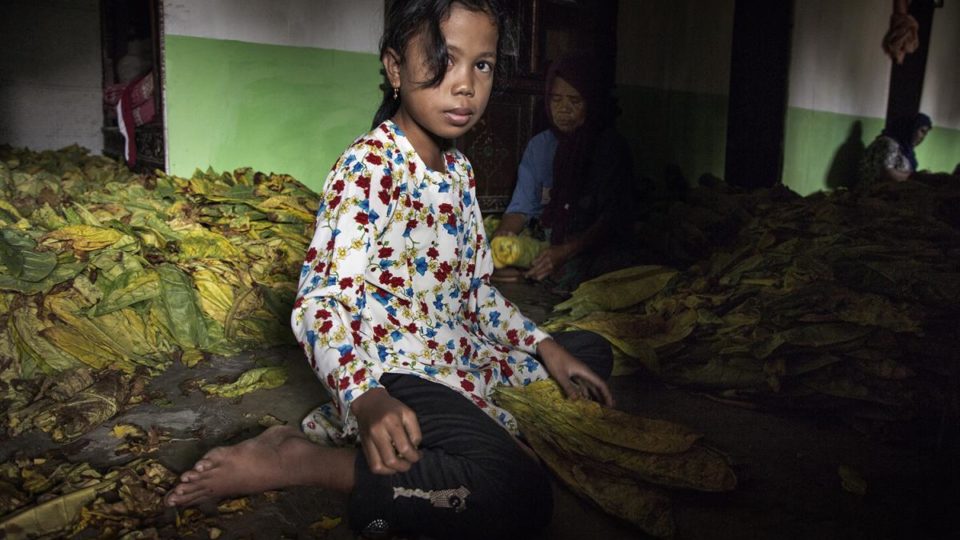Despite the steady growth of the Indonesian economy, there still remains large swathes of extreme poverty across the country, a desperate situation that allows the practice of child labor to continue even to this day. According to the Ministry of Manpower’s own statistics, there are over 1.6 million child laborers in the country, in settings ranging from domestic work to palm oil and even tobacco plantations.
Last week, the Manpower Ministry announced a new campaign to eradicate child labor from Indonesia within the next five years. Working together with the International Labor Organization (ILO), the ministry presented a roadmap to making the country child-labor-free by 2022.
“The success of the campaign to eliminate child labor requires the participation of all stakeholders and the synergy of all programs implemented and the enforcement of labor regulations,” said Maruli Hasoloan, the Manpower Ministry’s director general for the supervision of employment and occupational health, at a presentation called “Roadmap, Toward An Indonesia Free of Child Labor by the year 2022 “in Jakarta, last Thursday, as quoted by Liputan 6.
The campaign was also launched in part to commemorate the National Month Against Child Labor and World Day Against Child Labor on June 12.
Maruli said part of the campaign included ongoing efforts to have Indonesian cities in industrial areas declared child-labor-free zones. Companies in those areas are strictly prohibited from recruiting and employing child laborers of any kind and are heavily penalized if found doing so.
Another major component of the campaign is socializing child labor norms to communities, regional governments, and businesses, as well as programs to incentivize families to keep their children in school rather than putting them to work.
Maruli said it was important not just to meet Indonesia’s human rights commitments, but also to make sure that Indonesian workers are more educated so that they can be more competitive in the future.
Obviously, any and all efforts on the government’s part to reduce child labor are desperately needed, but setting lofty goals such as eradicating all child labor from the country by 2022 may seem naive when the government announced a similar campaign to make the country child-labor-free by 2020 back in 2013. Are they going to announce another campaign to make the country child-labor-free by 2025 in 2019?



